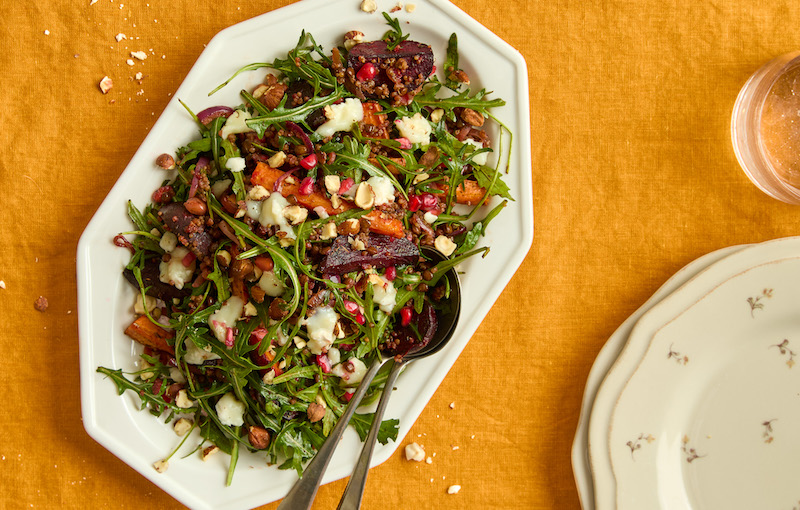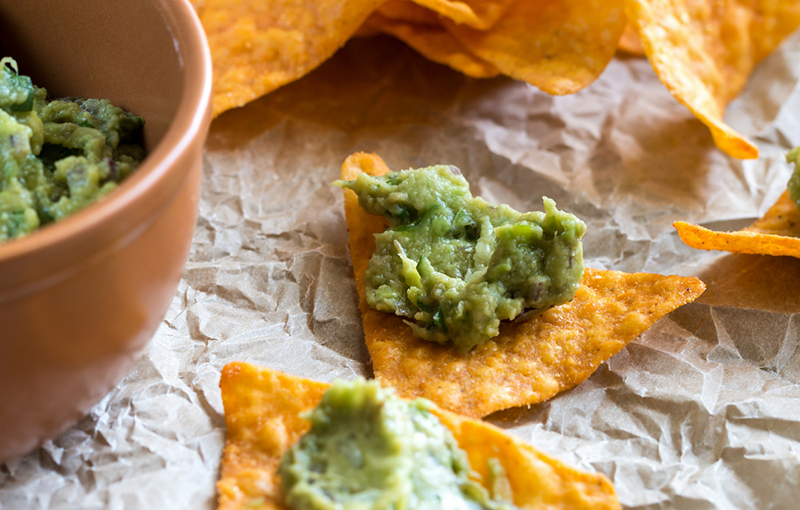If you’ve got a summer packed with plans – whether it’s a UK-based staycation, jetting off to somewhere sunny, or you’re just enjoying quality time at home with your family – you want to feel your best. More often than not, the way to achieve that lies within your gut.
Written by Dr Megan Rossi (PhD, RD), Founder of The Gut Health Doctor

Start with your gut immune: connection
In my previous post, I explained that the gut is more than just a digestive organ, and it can actually support nearly all other bodily functions, including the immune system. With around 70% of your immune system living in your gut, it’s essential to feed your microbes with the gut-nourishing variety they need. Not only can this support your day-to-day wellbeing, but research shows that those with more diverse gut microbes are less likely to experience travel-related gut symptoms, including travellers’ tummy (more on that below). So, start upping your plant points by 10 extra varieties per week for at least two weeks before you travel. Although if you have a more sensitive gut, be sure to increase your fibre gradually — slow and steady is the best way to train your gut to become fibre fit.
Hydration hacks (beyond just water)
Hydration plays a huge role in gut health, particularly for keeping things moving and preventing constipation (a common side-effect of travel, heat, or dietary changes). Yes, water is key (around 2L per day is the guideline), but you can also increase your water intake by eating more water-rich foods, such as cucumbers, melons, celery, and leafy greens. Plus, be mindful of caffeine and alcohol, which can be dehydrating, particularly if you up your intake and your body isn’t used to it. I always recommend alternating alcoholic drinks with a non-alcoholic alternative (like kombucha, which has added gut benefits as a fermented drink). And as for those electrolyte powders you’ve seen on social media? Unless you’re doing prolonged, intense exercise, sweating heavily, or recovering from vomiting or diarrhoea, you don’t need them. In fact, I’d recommend against them, given they are mostly just added sugar, salt and sweeteners.
Avoid the IBS mile-high club
Ever noticed your belly feeling uncomfortably bloated mid-flight? That’s because as the plane climbs, the air pressure in the cabin drops, and any gas trapped in your gut expands. It’s the same reason your ears pop and your crisp packet balloons. I like to call it ‘mile-high IBS’. If flying leaves your gut feeling off, you might benefit from going easy on FODMAPs (a group of fermentable carbs found in foods like onions, garlic and certain fruits) in the 24–48 hours before take-off. The FODMAP-lite approach is a great starting point. Just remember to bring these foods back into your diet once you’ve landed, as many FODMAPs are prebiotic and help feed your beneficial gut microbes.
Tackle travellers’ tummy
If you catch a stomach bug while away, your first instinct may be to reach for an antidiarrheal medication. But it’s often best to hold off at the start. Slowing things down too soon can actually prolong the infection by keeping the bug trapped inside.
- Eat smaller, more frequent meals to help ease the burden on your inflamed gut
- Drink plenty of fluids but limit food and drink that may stimulate the colon, such as chilli, high-fat meals, coffee and alcohol
- Temporarily reduce your intake of FODMAPs
- If the diarrhoea is severe — when fluid is passing ‘straight through’ — that’s when you might want to consider using an electrolyte solution (such as Dioralyte), to stay hydrated and maintain levels of important body salts, which help maximise fluid absorption from your gut
- Consider psyllium husk. It has a dual function, meaning it not only softens hard bowel movements, but also thickens your looser movements.
Remember, prevention starts at home. The more diverse your gut microbes before you travel, the more resilient your system has been shown to be when exposed to unfamiliar bugs. There’s also good clinical evidence to show that a specific probiotic strain, LGG, reduces your risk of travellers’ tummy when taken for seven days before, during your trip and seven days after you return.
The goal isn’t perfection, it’s consistency. So, whether you’re enjoying gelato on the Amalfi Coast or a BBQ in your garden, your gut can still thrive with a little extra support.
For more science-backed advice from Dr Megan Rossi, visit: https://www.theguthealthdoctor.com

You can also find delicious plant-packed & fibre-fuelled recipes from Dr Megan Rossi on the Mindful Chef menu every month. Just look out for The Gut Health Doctor badge.
Discover recipes
#stay #top #gut #health #summer #holidays



